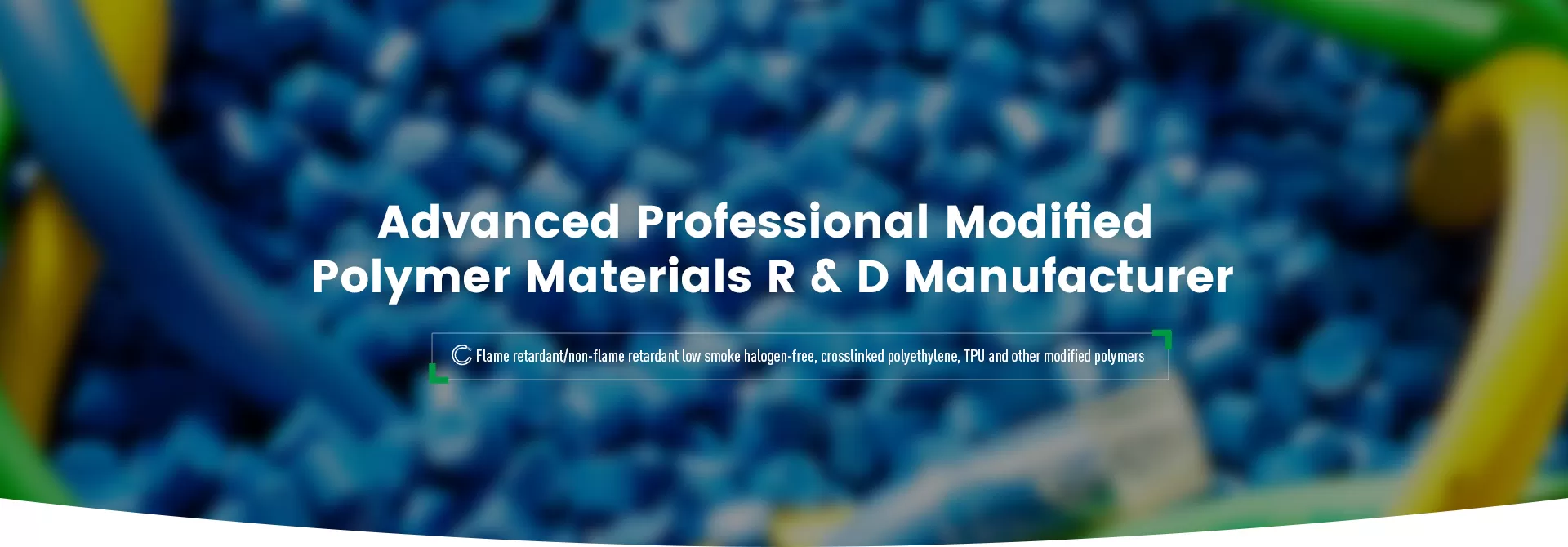
Biocompatible Thermoplastic Polyurethane (TPU) can not only be used to produce cable sheath layers, but its excellent biocompatibility, outstanding mechanical strength, wear resistance and chemical resistance, as well as good processing characteristics make it a popular high-performance material in the medical industry. In particular, it shows broad prospects in cable sheaths for medical equipment, human implants, artificial organs, medical catheters, medical films and tissue engineering.
The following significant characteristics of biocompatible TPU have gradually made it used in medical equipment cable sheaths:
1. Antibacterial effect: effective against Staphylococcus aureus, Escherichia coli and Candida albicans
2. Resistance to mold, microorganisms, chemicals, alcohol, acid and alkali
3. Compatible with gamma ray and ETO sterilization, low drug adsorption, easy bonding
4. High transparency, strength and flexibility
5. Good UV resistance and heat resistance
6. Low toxicity and biocompatibility
In the field of human implants and artificial organs, biocompatible TPU has become the preferred material for manufacturing artificial blood vessels due to its extremely high blood compatibility, durability and excellent biocompatibility. Compared with traditional materials, biocompatible TPU significantly reduces the immune response and thrombosis risk that may be caused by blood contact, ensuring the long-term stability and function of vascular structure. More importantly, biocompatible TPU can also minimize complications caused by implants and improve patient safety.
Biocompatible TPU also plays a vital role in the manufacture of cardiac assist devices. As an ideal material for the outer shell and internal seals of heart pumps, it can withstand strong blood flow impact and resist long-term physical wear. In such devices, the high strength and excellent elasticity of biocompatible TPU ensure that these components maintain stability and sealing in complex environments, thereby ensuring the safety and reliability of the entire device and reducing the risk of patients using it.
TPU has achieved significant application in the field of medical catheters due to its excellent biocompatibility and flexibility. Medical catheters, such as infusion tubes, urinary catheters, breathing tubes and cardiac catheters, as well as medical imaging catheters, usually require materials with good softness and adaptability to ensure smooth insertion and comfort during use.
The high flexibility and elasticity of biocompatible TPU enable these catheters to better adapt to the environment in the patient's body during insertion and removal, reducing damage to tissues. For example, a gastroscope tube made of biocompatible TPU, with its high strength and flexibility, can not only ensure the smooth progress of the examination process, but also effectively reduce the patient's discomfort. More importantly, these materials are non-toxic and harmless, meet the high-performance requirements of fiber gastroscopes, and ensure safety during medical treatment.
In addition, the application of biocompatible TPU in endotracheal intubation is becoming increasingly common. TPU endotracheal intubation not only has good mechanical properties, but also resists radiation damage and improves comfort after intubation. Due to its lightness and softness, patients often feel less discomfort and irritation when using these tubes, thereby improving the treatment experience.
Traditional Medical Film materials, such as PE (Polyethylene) and PVC (Polyvinyl Chloride), often have deficiencies in breathability and user comfort, which can easily lead to discomfort when wearing or local skin lesions. In contrast, biocompatible TPU medical films have obvious advantages in softness, moisture permeability, elasticity and waterproof performance, and are therefore widely used in medical protective equipment such as wound dressings, surgical protective films and protective gloves. TPU films can provide better comfort and skin friendliness, reducing discomfort caused by long-term wear.
In addition, the breathability of TPU film not only helps to keep the wound dry, but also promotes the exchange of air and water vapor, avoiding infection or other complications caused by the closed environment. This makes biocompatible TPU an ideal choice for medical products such as wound dressings and postoperative protective films.
With the rapid development of tissue engineering and regenerative medicine, the application prospects of biocompatible TPU materials are becoming more and more extensive. Its excellent biocompatibility and processing properties make it one of the ideal materials for building artificial tissues and organs. At present, researchers have begun to explore the use of biocompatible TPU materials to develop tissue engineering products such as blood vessels and cartilage, and have made certain breakthroughs in tissue repair and regeneration. Its unique structure and properties can effectively support cell growth and tissue formation, bringing more effective treatment options to patients.
In addition, biocompatible TPU foam materials are also widely used in the research and development of artificial skin and wound dressings. Due to its excellent breathability and skin growth-promoting properties, TPU foam can accelerate the growth of epithelial cells, prevent the loss of moisture and inorganic salts in the wound site, and reduce the risk of bacterial infection. These advantages make biocompatible TPU show great potential in fields such as wound treatment and skin regeneration.